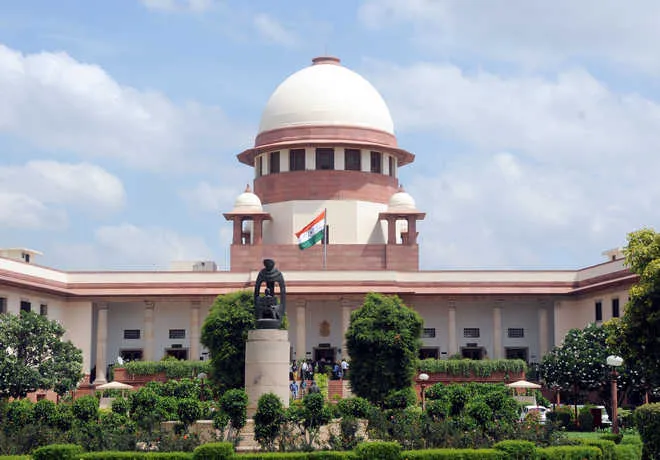New Delhi, December 7
The Supreme Court has set up a special bench to hear public petitions challenging the validity of certain provisions of the 1991 Act. These clauses bar the filing of a suit for repossession of a place of worship or seeking change in its character with effect from August 15, 1947.
A three-member bench comprising Chief Justice Sanjiv Khanna, Justice Sanjay Kumar and Justice KV Viswanathan can hear the matter on December 12 at 3.30 pm. The Supreme Court has all the petitions, including the public petition filed by Ashwani Upadhyay, seeking repeal of Sections 2, 3 and 4 of the Places of Worship (Special Provisions) Act, 1991. Among the various reasons advanced was the argument that these clauses take away the judicial right of an individual or religious group to reclaim a place of worship.
The case will be heard in the backdrop of several lawsuits filed in various courts, including the Gyanvapi Masjid in Varanasi, the Shahi Eidgah in Mathura and the Shahi Jama Masjid in Sambhal, which have claimed that they are ancient temples. was built after destruction and Hindus should be allowed to worship there. A total of six petitions have been filed against the provisions of the 1991 Act, including the petition filed by former Rajya Sabha member Subramaniam Swamy. Former Union Minister Swamy says the apex court ‘read down’ certain clauses so that Hindus can lay claim to the Gyanvapi Masjid in Varanasi and the Shahi Eidgah Masjid in Mathura, while Upadhyaya says the entire law is unconstitutional and there is no question of reading it down. is not born The Supreme Court had on March 12, 2022 sought a response on a petition filed by Upadhyay challenging the validity of certain provisions of the Act. The relevant law prohibits filing of cases to reclaim religious places existing on August 15, 1947 and seeking change in their character. An exception to the law was the Ram Janmabhoomi-Babri Masjid dispute in Ayodhya. -News-Patiala
The Muslim side referred to the decision of the Constitutional Bench
The Muslim side has mentioned the law of 1991 in these cases and said that the related case is not worth hearing. Jamiat Ulema-e-Hind, referring to the judgment of the five-judge Constitution Bench in the Ram Janmabhoomi-Babri Masjid ownership rights case, said that the reasoning was given keeping in mind the context of the Places of Worship (Special Provisions) Act, 1991. That the law cannot be ignored now. The Jamiat Ulema-e-Hind has filed a petition in the apex court challenging the petitions of the Hindu petitioners saying that considering the petitions against the Act will lead to a flood of lawsuits across the country. Similarly, the Bharat Muslim Personal Law Board has also approached the Supreme Court and the Anjuman Intazamiya Mosque Management Committee, which manages the mosque in the Gyanwapi complex, has also sought intervention in the matter. Muslim organization Jamaat-e-Islami Hind today called for strict implementation of the Places of Worship Act.

